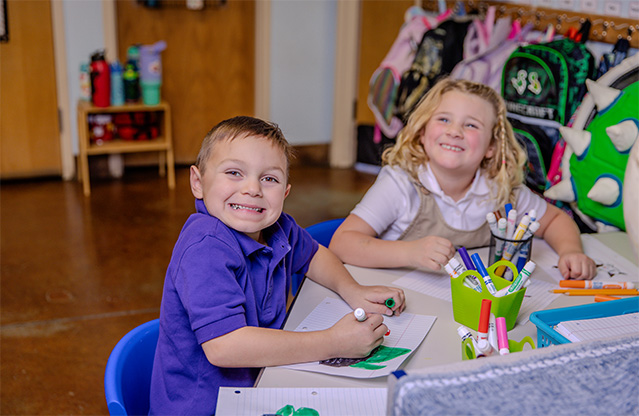Education is most effective when it meets the needs of each student. Every child brings unique strengths, learning styles, and interests to the classroom. When instruction is tailored to those needs, students are more engaged, motivated, and confident in their abilities. In today’s evolving academic environment, individualized learning is essential to help students reach their full potential.
Private schools are especially well-positioned to offer personalized instruction and attention. With smaller class sizes, flexible curricula, and dedicated educators, private institutions can focus on each child as a whole learner. This method supports academic progress while promoting personal development, creating a foundation for long-term success inside and outside the classroom.
At Candil Hall Academy, we understand that each student learns differently. That understanding shapes everything we do. When a child joins our community, we take the time to get to know their academic strengths, challenges, and goals.
How Private Schools Create A Strong Foundation For Individualized Learning
Private schools provide a range of tools and strategies to ensure each student receives the support and attention they need. Here are several ways a private school setting supports individualized learning:
1. Smaller Class Sizes Mean Focused Attention
In private schools, smaller class sizes allow teachers to spend more time with each student. They can observe learning habits, identify strengths and gaps, and adapt real-time instruction. This direct attention helps students feel seen, supported, and capable of reaching their potential.
2. Flexible Curriculum Tailored To Student Needs
Rigid public school standards do not bind private schools. Educators have the flexibility to adjust lessons, pacing, and materials based on the learning needs of each class or individual student. This adaptability ensures that instruction remains relevant, engaging, and developmentally appropriate.
3. Frequent And Personalized Assessment
Instead of relying solely on standardized tests, private schools use various assessment methods, such as performance tasks, observations, and project-based evaluations. These assessments give teachers a clearer picture of each student’s progress and allow for more timely and meaningful adjustments to instruction.
4. A Variety Of Learning Approaches
Students benefit from instruction that matches how they learn best. Private schools often integrate a mix of teaching methods, including hands-on activities, technology integration, group work, and independent study. This approach gives students multiple ways to connect with the material and deepen their understanding.
5. Teacher Collaboration And Student Support Teams
Educators in private schools frequently collaborate to share strategies and insights that support individual learners. These teams include classroom teachers, learning specialists, and enrichment coordinators who work together to ensure students stay on track and are challenged at the right level.
6. Strong Relationships Between Students And Teachers
When students feel known and valued by their teachers, they are more likely to take academic risks and engage in learning. In private school settings, the close relationships between students and educators help build trust and a strong foundation for individualized guidance.
7. Emphasis On Goal Setting And Self-Reflection
Individualized learning encourages students to take ownership of their education. Private schools often include goal-setting exercises, reflection journals, and one-on-one conferences to help students understand their growth and set future learning targets. These practices build independence and promote lifelong learning habits.
8. Opportunities For Advanced Or Targeted Support
In a private school, students who need extra help in certain areas can receive targeted intervention without stigma. Likewise, students who excel can be offeredadvanced material or enrichment opportunities. This ensures all learners are supported where they are, allowing each one to progress at the right pace.
9. Enrichment Through Arts, Stem, And Specialized Programs
Private institutions often have the resources to offer programs that complement core academics. From robotics and visual arts to language immersion and creative writing, these opportunities allow students to explore their interests while reinforcing critical thinking and problem-solving skills.
10. Focus On The Whole Child
Private schools approach learning as a blend of academic, emotional, and social growth. Students are supported in their studies and in building character, leadership, and confidence. This comprehensive support contributes to their overall well-being and academic motivation.
Support Individual Growth Leads To Academic Success
Candil Hall Academy views individualized learning as a daily practice. Each lesson, project, and conversation is an opportunity to connect with students personally. We provide the structure and resources to meet children where they are and help them move forward with purpose. Through thoughtful planning and close teacher-student relationships, we give our learners the attention they need to grow steadily and confidently.
Focusing on each student’s strengths and needs creates an environment where success is not a distant goal but a regular part of their academic journey. Our students feel pride in their work because it reflects their effort and progress.
For more information on our academic programs, call Candil Hall Academy at 702.656.3370.

